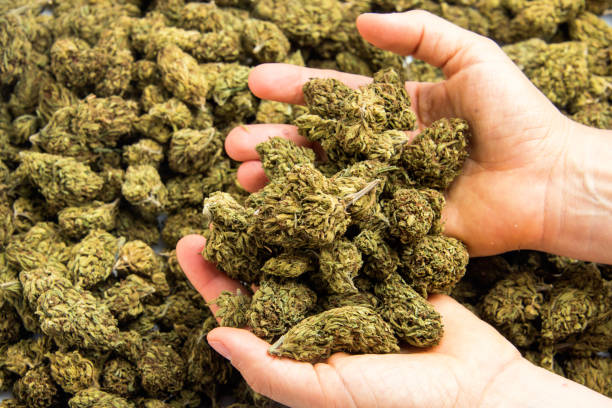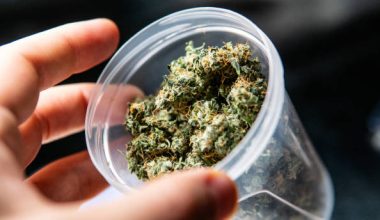The conversation around cannabis, or “weed”, in the UK has evolved significantly in recent years. No longer solely the domain of illicit back-alley deals or rebellious youth culture, the discourse today is grounded in serious political, medical, and social debates. From calls for decriminalisation to the legalisation of cannabis-based medical treatments, the landscape is shifting, albeit slowly. In this article, we explore the multifaceted aspects of weed UK, examining legal frameworks, public perception, medical use, and market trends. With international examples shaping domestic conversations, the United Kingdom is at a pivotal point in deciding how to treat cannabis moving forward.
The Legal Status of Weed in the UK
A Class B Drug with Complicated Rules
In the UK, weed is classified as a Class B drug under the Misuse of Drugs Act 1971. Possession can result in up to five years in prison, an unlimited fine, or both. Supplying or producing cannabis can lead to up to 14 years behind bars. While these laws seem severe, enforcement often tells a different story. In many regions, especially urban areas, police forces have adopted more lenient approaches, often issuing warnings or on-the-spot fines for first-time offenders caught with small amounts. Nevertheless, these leniencies are not codified into law, leading to a grey area in enforcement.
Medicinal Cannabis Legalisation
Since November 2018, doctors on the specialist register have been legally allowed to prescribe cannabis-based products for medicinal use. However, access is tightly regulated. Only a few conditions, such as rare forms of epilepsy and multiple sclerosis, qualify for treatment. In practice, very few NHS prescriptions have been issued, prompting many patients to seek private care or even source cannabis illegally. Despite this legislative step, the UK’s medicinal cannabis framework remains one of the most restrictive in Europe.
Social Attitudes and Cultural Shifts
A Generational Divide
Public opinion towards weed UK is gradually softening, with younger generations more supportive of legalisation and decriminalisation. According to recent surveys, a significant portion of adults under 35 believe that recreational cannabis should be legal, mirroring attitudes found in countries like Canada or parts of the United States. Older demographics, however, tend to remain sceptical, often associating cannabis with antisocial behaviour or health risks. This generational divide is key in understanding political reluctance to push for legislative reform.
Mainstream Media and Pop Culture Influence
Cannabis has increasingly made its way into mainstream British culture, from TV shows and music to social media influencers discussing its use openly. Documentaries on medicinal cannabis and stories of suffering patients denied treatment have humanised the issue. This shift in representation contributes to a slow but steady erosion of long-held stigma.
The Emerging Cannabis Market
A Legal Grey Economy
Despite cannabis being illegal for recreational use, an underground economy thrives. From CBD shops selling non-psychoactive cannabis products to private clubs operating under various legal loopholes, there’s a semi-visible market growing in plain sight. Although CBD is legal as long as it contains less than 0.2% THC, many argue that these products often skirt the boundaries of legality.
The Potential for Economic Benefit
Should the UK choose to fully legalise cannabis, estimates suggest that the market could be worth billions annually. Taxation, job creation, and reduced law enforcement costs are frequently cited benefits. Lessons from Canada and certain U.S. states show that with proper regulation, a legal weed industry can significantly contribute to the national economy. For many campaigners, the financial argument is just as compelling as the moral or medical one.
Political Landscape and Reform Efforts
A Lack of Political Consensus
Currently, there is no major political party in the UK that fully supports the legalisation of recreational weed. The Liberal Democrats and Green Party have expressed some support for reform, while Labour and the Conservatives remain cautious. Political leaders often cite public health concerns and the fear of promoting drug use. However, backbench MPs and advocacy groups continue to push for policy changes, particularly around decriminalisation and easier access to medical cannabis.
International Influence
The global trend toward cannabis legalisation has not gone unnoticed in Westminster. Countries like Germany, Canada, and parts of the U.S. have implemented varying degrees of legalisation. These international examples provide data and models that UK policymakers can study. While the UK is unlikely to be a trailblazer, it may follow suit if broader public and economic pressures continue to grow.
Weed UK and Health Considerations
Risks and Misconceptions
Cannabis is not without health risks. It can impair cognitive function, especially in young users, and may exacerbate mental health conditions such as anxiety or schizophrenia. However, the risks are often exaggerated in public discourse. Many studies show that the dangers of cannabis are lower compared to legal substances like alcohol or tobacco. Education, rather than criminalisation, is increasingly viewed as the most effective way to mitigate harm.
Therapeutic Uses and Medical Research
Cannabis has shown promise in treating a range of medical issues, including chronic pain, epilepsy, and PTSD. Ongoing research aims to better understand its full therapeutic potential. In the UK, a growing number of private clinics now offer cannabis-based treatments, although high costs limit accessibility for many patients.
FAQs
Is weed legal in the UK?
No, weed is illegal for recreational use in the UK. It is classified as a Class B drug. However, medicinal cannabis is legal under specific, restricted circumstances.
Can I be arrested for possessing weed in small amounts?
Yes, but many police forces issue warnings or fines instead of making arrests for small quantities. This varies by region.
How can I get medical cannabis in the UK?
You must receive a prescription from a specialist doctor. The NHS rarely prescribes cannabis, so many patients turn to private clinics.
What’s the difference between CBD and weed?
CBD is a non-psychoactive compound found in cannabis. It’s legal in the UK as long as it contains less than 0.2% THC, the psychoactive component in weed.
Will weed ever be legalised in the UK?
It’s uncertain. While public opinion is shifting and international trends are influential, no major UK party has committed to full legalisation.
Final Thoughts on the Future of Weed UK
Shifting Winds in Policy and Culture
As younger generations grow in political influence, the pressure on lawmakers to reform outdated cannabis laws will likely increase. Public sentiment continues to evolve, and stories of medical hardship often generate sympathy for legal access to cannabis.
Lessons from Abroad
Looking at successful legalisation models around the world offers valuable insight into what could work in the UK. Countries like Canada provide examples of how regulation can work without leading to social collapse or increased misuse.
The Road Ahead
Change may be slow, but the momentum behind reform is real. Whether through decriminalisation, medical access expansion, or full legalisation, the future of weed UK will depend on evidence-based policies, public engagement, and political courage.
Conclusion
The conversation around weed in the UK is complex and ever-evolving. While its legal status remains unchanged for now, public attitudes, international pressure, and growing economic incentives are likely to keep the issue at the forefront of national debate. From the limited legal use of medicinal cannabis to the thriving underground market, it’s clear that cannabis already plays a significant role in British society. Legalisation may not be imminent, but reform seems increasingly inevitable as more citizens, doctors, and even politicians reconsider outdated policies. Weed UK is no longer just a fringe issue, it is a mainstream topic deserving serious, nuanced consideration.
Medical Disclaimer:
The information provided in these blog posts is intended for general informational and educational purposes only. It is not a substitute for professional medical advice, diagnosis, or treatment. Always seek the advice of your physician or other qualified healthcare provider with any questions you may have regarding a medical condition. The use of any information provided in these blog posts is solely at your own risk. The authors and the website do not recommend or endorse any specific products, treatments, or procedures mentioned. Reliance on any information in these blog posts is solely at your own discretion.






